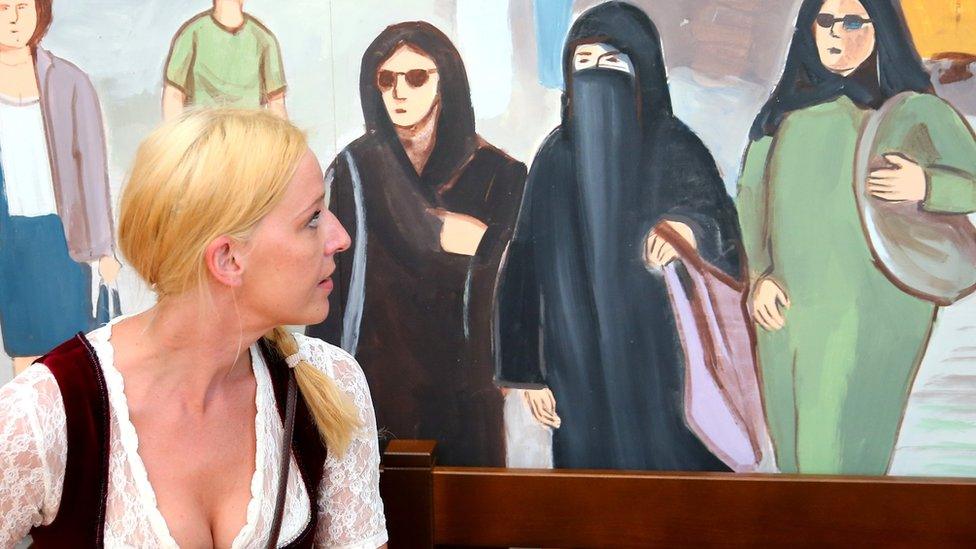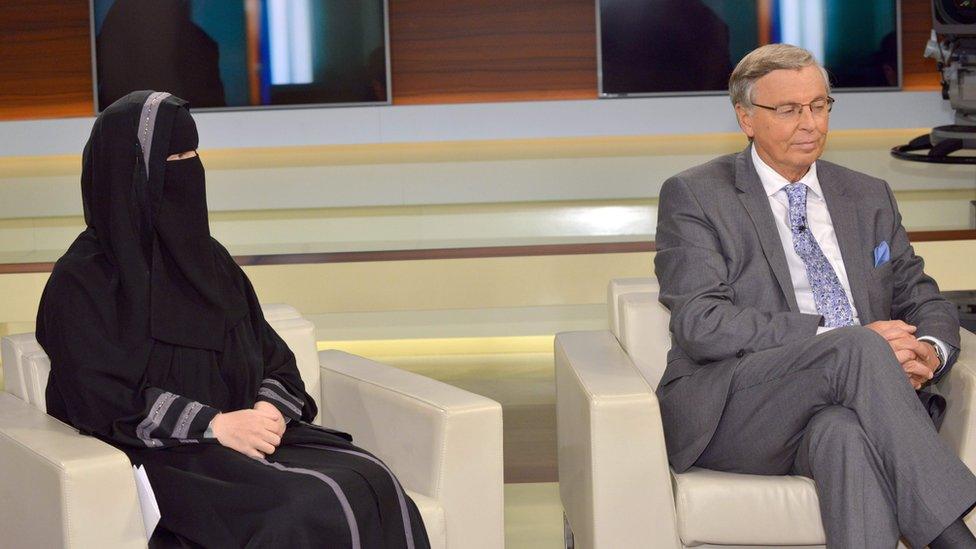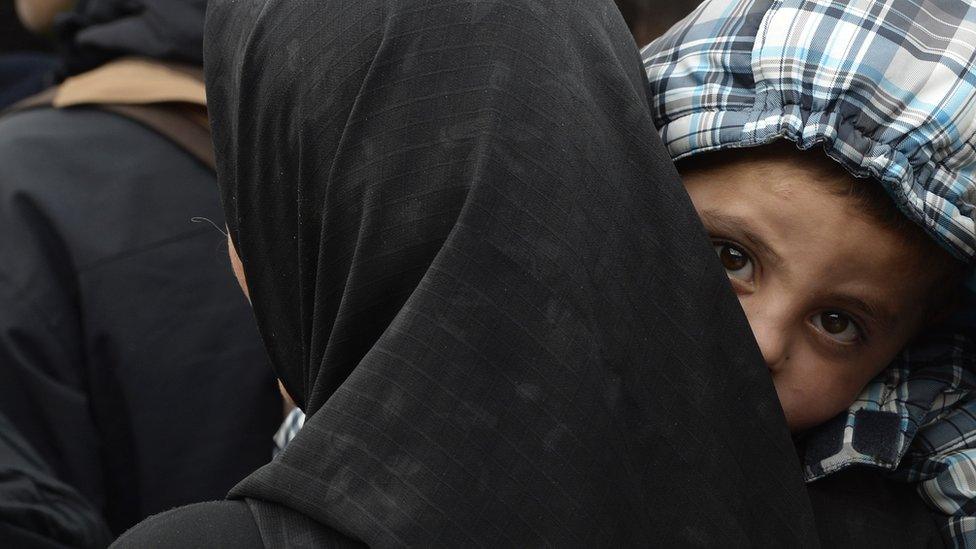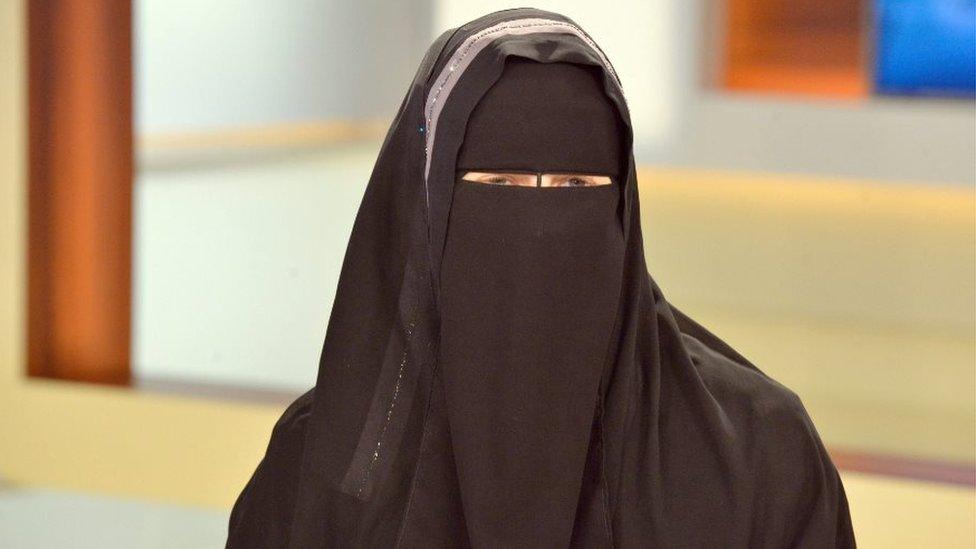Germany's Bavaria to ban full-face veil
- Published

In parts of Germany, concerns about terror attacks and Muslim migration have coalesced around the issue - or, as critics say, the non-issue - of the face veil
The German state of Bavaria has announced plans to ban the full-face veil in government workplaces, schools, universities and while driving.
"Communication happens not only via language but also looks, facial expressions and gestures," said state Interior Minister Joachim Herrmann.
But critics say the ban will have little practical impact in a state with only a small number of Muslims.
They say the regional government is eyeing upcoming federal elections.
The state's ruling conservatives, the Christian Social Union (CSU), are wary of a challenge from the anti-immigrant Alternative for Germany (AfD) in the polls in seven months' time.
The draft law introduced on Tuesday evening would see the niqab (face-covering veil) and burka (face and body veil) banned in public institutions as well as places such as when dealing with police and in polling stations where identity is key.

German broadcaster ARD was criticised for allowing a Swiss woman to wear the niqab on a TV debate last November
The CSU - sister party to Chancellor Angela Merkel's Christian Democrats (CDU) - holds an absolute majority in the regional parliament, so the legislation looks set to be passed before the summer break.
Communication is the "foundation of our interactions with each other and it's the basis of our free and democratic order", Mr Herrmann said.
"Concealing your face is at odds with this culture of communication," he added.
When asked by the Sueddeutsche Zeitung newspaper how many state civil servants would be affected by the ban, he said none. But he said it was important that legislation was in place to keep the veil out of such public spaces.
The newspaper quoted Green deputy Ulrike Gote, who is opposed to a ban, as saying it "solved a problem we don't have" and was merely a political gesture that implied that Islam posed a threat to German society.

Germany has opened its doors to hundreds of thousands of migrants fleeing war and poverty over recent years
Bavaria was targeted in several of the bloody attacks which hit Germany last year - some carried out by Muslim migrants.
That prompted its prime minister to urge the government to address immigration-related concerns.
Germany has accepted more than a million migrants, mostly from Muslim nations, into the country over the past 18 months.
On Wednesday, the German cabinet agreed draft rules on deportations. They mean rejected asylum seekers will be deported more quickly and more will be sent home.
The new rules would also, controversially, allow authorities to check asylum seekers' phones and computers for data if there are doubts about their nationalities.
Rising number of bans
Germany has not pursued a total ban on full-face veils as it is acknowledged this would violate its constitution.
But Interior Minister Thomas de Maiziere has proposed a ban in public buildings and Mrs Merkel has urged state governments to ban them where possible.
There has been a rise in the number of European nations banning the full-face veil over recent years.
France, Austria, Belgium and Turkey have all imposed a ban in certain public spaces. Legislation supporting a ban is in progress in the Netherlands, while local bans apply in other nations including Denmark, Russia, Spain and Switzerland.
- Published31 January 2017
